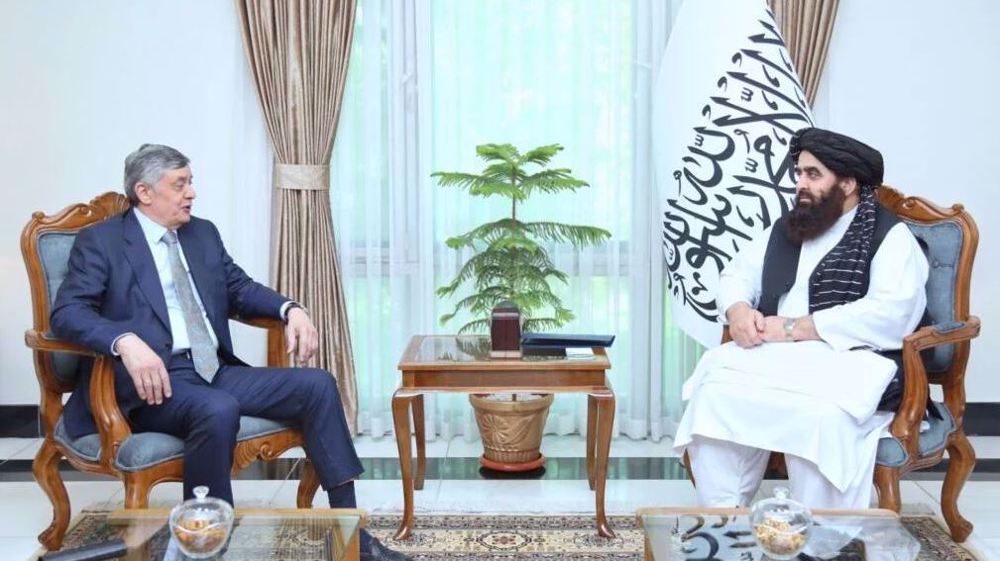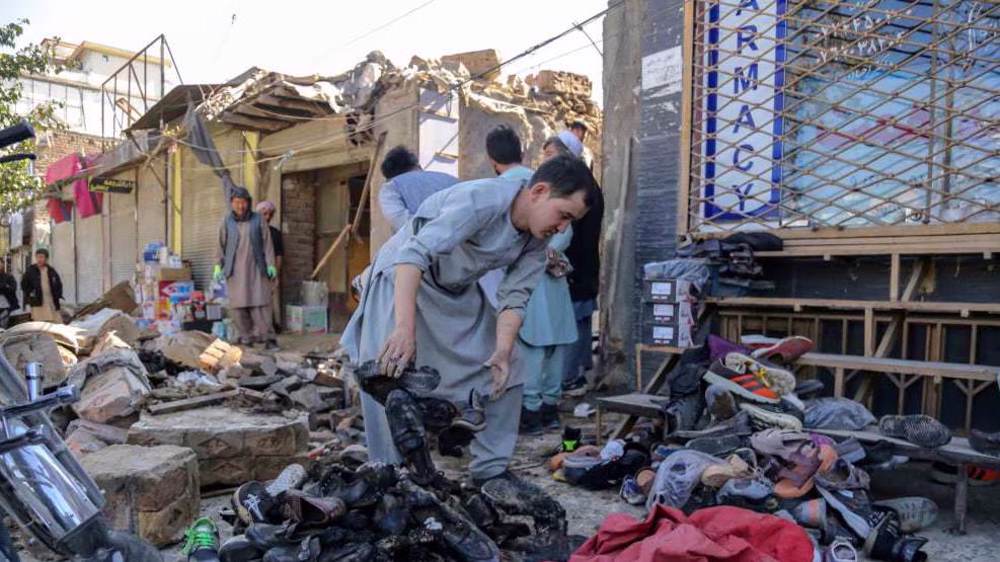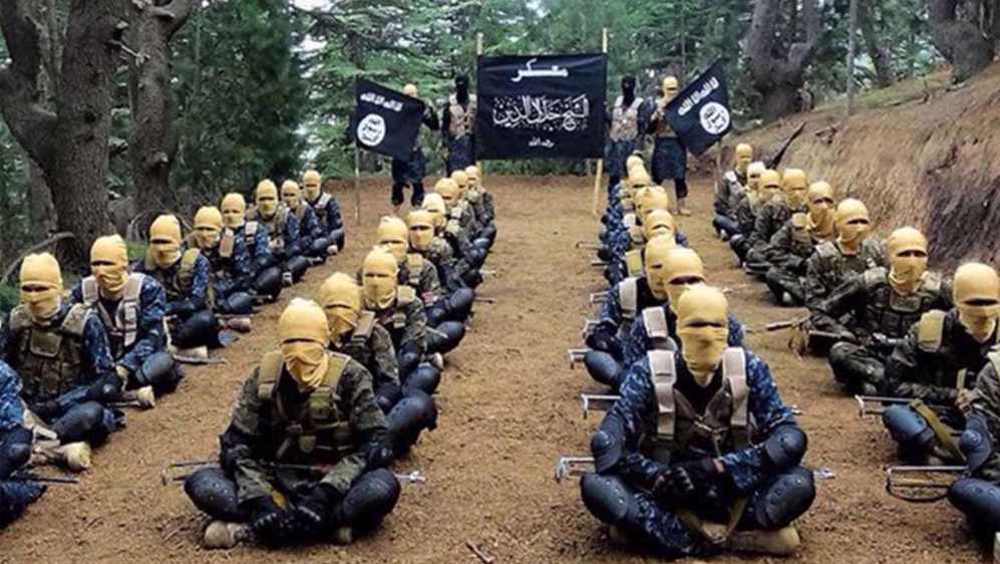US bomb test protracted Afghan war, upped collateral damage: Analyst
An American political commentator says the United States has a long history of testing new weapons in agricultural areas and what Washington perpetrated in Afghanistan in 2017 on the pretext of combating terrorism only protracted the war and increased the amount of collateral damage.
Jim W. Dean, the managing editor of Veterans Today from Atlanta, made the remark during a Thursday edition of Press TV’s The Debate program while commenting on the Mother of All Bombs (MOAB) — the largest non-nuclear bomb that the US used in 2017 allegedly to bomb Daesh terrorists' tunnels in the Achin district of the eastern Afghan province of Nangarhar.
Local residents say some diseases have emerged since then and complain about health issues they have faced as a consequence of the US attack in the region.
The region's agriculture has also been affected and the Afghan government says it is committed to probing the case.
“The United States has a long history of testing new weapons in faraway lands and in agricultural areas where they know that they’d be able to go in,” Dean told Press TV on Thursday.
“You can be sure that the US had gone in there and collected some soil samples, then would have had those soil samples from their own test. It is part of the normal par. They have seen what the residue is and I would advise the afghan government to demand that they ask for those tests that the US did and see if they deny it because that’s a standard procedure in using any kind of new weapon and that to see what’s left behind,” Dean added.
The US analyst stressed that such actions would exacerbate the situation in Afghanistan as “the war continues and the Taliban wants to fight forever,” and that would be “the cost of not having a peaceful resolution.”
Michael Lane, founder of the American Institute for Foreign Policy from Washington, was the other panelist invited to The Debate program, who pointed to the health conditions as well as skin diseases and respiratory problems that started after the MOAB test.
“One of the real problems in health is particulate inhalation and when you use a weapon of this size, the amount of airborne particulate that’s going to just sort of meander in the countryside and have the potential of being inhaled and thus causing medical problems down the stream is particularly concerning, more than the smaller ones, because they have a much smaller footprint,” Lane said.
“It is incumbent upon any combatants to minimize the civilian casualties, the civilian damage that they might incur,” he added.
The US invaded Afghanistan in October 2001 and overthrew a Taliban regime in power at the time. But US forces have remained bogged down there through the presidencies of George W. Bush, Barack Obama, and now Donald Trump.
Nearly two decades on, Washington is seeking a truce with the militants, who now control or have influence in about half of Afghanistan’s territories.
The US-led war has reportedly killed more than 150,000 people since its inception, including local security forces, civilians, insurgents and foreign troops. Thousands of US soldiers and their allies have also been killed.
The conflict has cost the United States around a trillion dollars.
Nearly 20,000 foreign troops, most of them Americans, are currently deployed in Afghanistan as part of a mission to purportedly train, assist, and advise Afghan security forces.
VIDEO | Paris march in support of Palestine women
VIDEO | ICC issues arrest warrants for Israeli prime minister, ousted regime war minister
120 Palestinians perish as Israeli war machine keeps ravaging Gaza
VIDEO | Struggles of Palestinian women amidst war, displacement
VIDEO | Hezbollah rains attack drones down on elite Israeli brigade
VIDEO | US biased mediation fails
Leader: All captains of criminal, Zionist, terrorist gang must be prosecuted
Iran further raises its oil prices for Chinese buyers: Report












 This makes it easy to access the Press TV website
This makes it easy to access the Press TV website